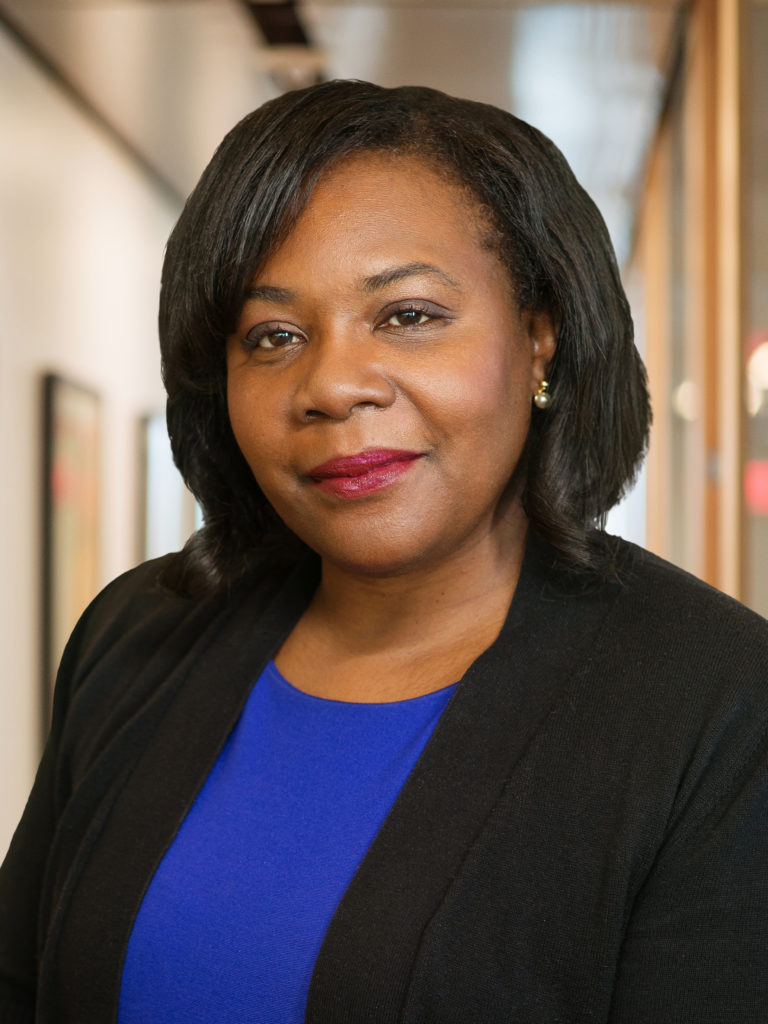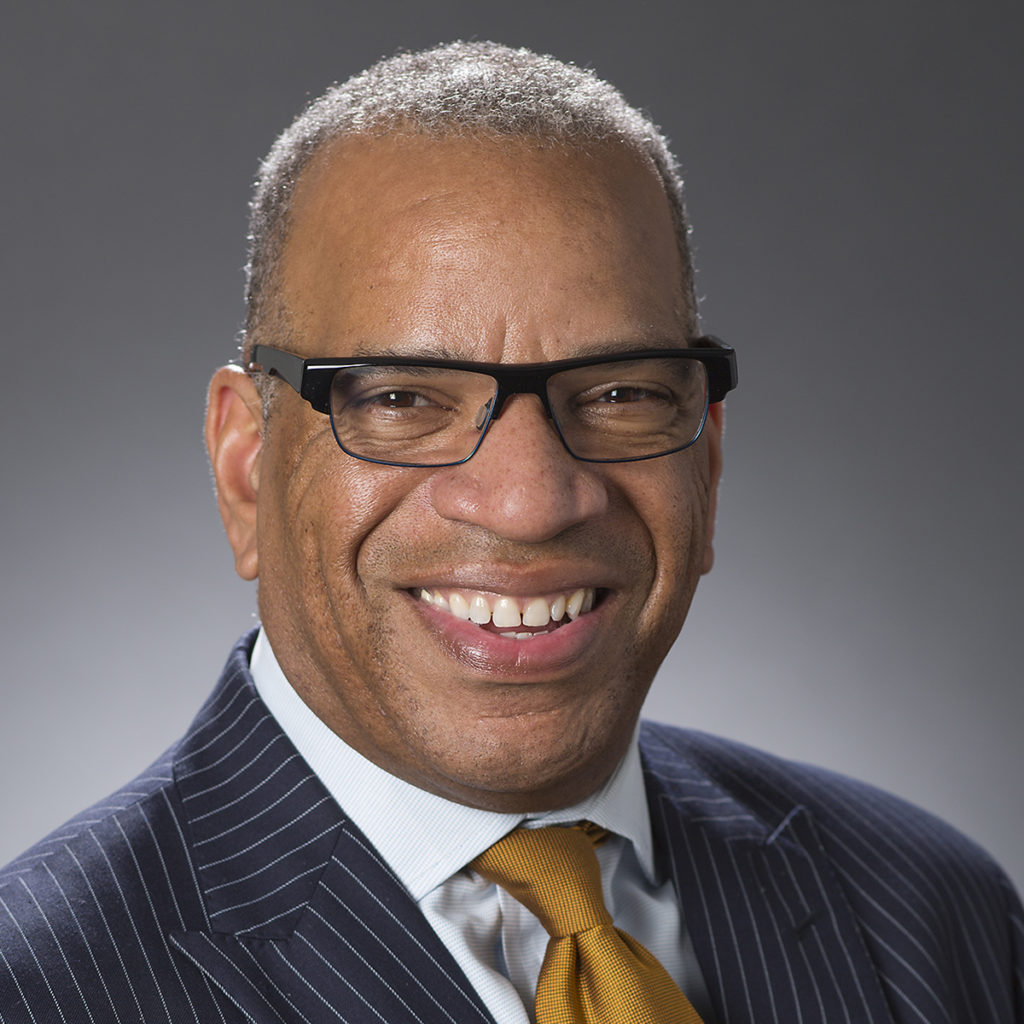By Alicia Kitsuse, Director, TFN’s Inclusive Economies
The transition of the Restoring Prosperity in Older Industrial Cities working group to Inclusive Economies forges new ground in TFN’s community and economic development work. To mark the official rollout of the new name, and a new framework focused on race, place and power-building, TFN’s Inclusive Economies Director Alicia Kitsuse caught up with steering committee members Wendy Lewis Jackson of The Kresge Foundation and Scot Spencer of The Annie E. Casey Foundation for a conversation about how the past informs the future of this expanding stream of work. (You can read the full announcement about TFN’s Inclusive Economies here.)
Older Industrial Cities was one of the earliest working groups to be established at TFN and has been operating for a good ten years. What was the impetus for this transition?
Wendy: One of the biggest reasons for a change or reset was the need to be responsive to our members, who were going deeper in their work in terms of looking at the broader trends that are shaping the field. Part of that was from coming out of the Great Recession and looking at its effects, and recognizing the need to ensure that inequality — particularly racial inequality —was addressed. We also needed a fresh data set to ground our work.
Scot: Building on that, I think it’s important to recognize that the OIC work was organized at a different point in time, before the recession. With the recession, there was a whole new energy and responsiveness to the plight of older industrial cities, and there was a corresponding role for places that had suffered, particularly those associated with the auto industry. But we’ve come to learn and understand that it’s not just place connections that need to be restored, but people connections. So now we’re focused on including people in place in a renaissance approach to shared prosperity.
Economic inclusion is a prominent issue in philanthropy and, more generally, in community development. What’s distinctive about the way TFN’s Inclusive Economies is approaching this area of work?
Scot: Well, for one thing, we’re putting people at greatest disadvantage and distance from opportunity at the center of how we think about inclusive economies, which we believe is the way to ensure broad-based inclusion. We’re intentional about the pathway to achieving inclusion.
Wendy: I’d add that what makes this group significant and relevant is that it intentionally works at the intersection of the economy, racial equity, and place-based practice. Our distinction is in our holistic and data-informed approach to place-based change.
Scot: Also, we’re not limited by geography—either to place size or type, or to an urban, suburban, or rural environment, or native lands. We’re place agnostic, which adds complexity to how we think about solving for place-based problems.
Are there any lessons from OIC that will be carried over into the new group?
Wendy: What will be important is a continued commitment to a few core principles. One is appreciative inquiry and knowledge sharing — the ability to learn together in place. Another is collaboration among sectors, for example through our partnership with the Federal Reserve [through the Federal Reserve-Philanthropy Initiative] and, in our earlier years, our interactions with the federal government. We also want to be sure we have a breadth of place-based funders in our network— funders working at the national, regional, and local levels.
Scot: Agreed. One of the constants of the working group will be our working partnerships. I see our work with the Fed and others continuing, but I also see us forming new partnerships. When we started the OIC work our partners were at the federal level. In the future, it will probably be more about partnering at the state and local levels to find solutions to local problems as they’re playing out in a global context.
So, moving forward, what are the priority issues or challenges you’d like the group to explore?
Wendy: From my perspective, our highest priority is making sure we have a platform for engaging new interests and participants in the working group. I’d also prioritize increasing and expanding communication about what we’re learning and doing in the working group. How do we ensure that learning and action are coupled with stronger communication with the field?
Scot: One of the things of value would be gaining more knowledge of people in places — an understanding the issues of impacted populations that’s goes beyond what we can learn from quantitative research. For example, our recent community-based research with the Fed underscored the importance of listening to all voices, and how much community-level engagement matters to developing interventions that advance economic inclusion. The other issue I’m particularly interested in is how we do this work in a way that doesn’t shy away from policy challenges at the state and local levels. I’d like to focus on working through to core issues rather than on work arounds.
Do you have an elevator pitch for funders considering joining Inclusive Economies?
Scot: What’s most important about this work is that the vitality of our country and the future of our country depends on reducing racial and economic disparities. As funders, we have a role and a responsibility to reduce and eliminate those gaps for people in the United States.
Wendy: We’re about an expanded approach to thinking about place-based practice. This is a group for anyone who is deeply committed to inclusive economies for all, and to ensuring that no one in local communities gets left behind.

About the Author

Alicia Kitsuse, Director of Inclusive Economies
As director of the Inclusive Economies Program (formerly the Older Industrial Cities Program), Alicia leads funders in collective learning, knowledge-building, and joint action that advances shared, equitable, and restorative local and regional prosperity.

Wendy Lewis Jackson, Managing Director, Detroit, The Kresge Foundation
Wendy co-leads The Kresge Foundation’s efforts to revitalize Detroit and to strengthen its social and economic fabric. Her work supports organizations providing economic opportunity for low-income people and addresses the needs of vulnerable children and families.

Scot Spencer, Associate Director, Advocacy and Influence, The Annie E. Casey Foundation
Scot leads The Annie E. Casey Foundation’s work in advancing community-focused policies, practices and strategies that increase opportunities for children, families and the places where they live and foster their success. Spencer also coordinates Casey’s local advocacy efforts in Baltimore.

About the feature image:
Photos at the top of this post are from Turning the Corner: Monitoring Neighborhood Change to Prevent Displacement, a three-year project guided by the Urban Institute and the Federal Reserve-Philanthropy Initiative, a collaboration between TFN’s OIC working group and the Federal Reserve. The initiative will continue as part of TFN’s Inclusive Economies group.
